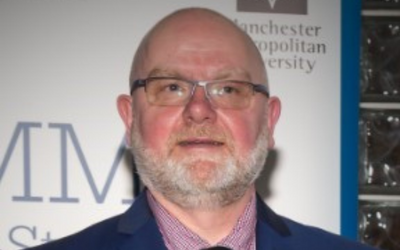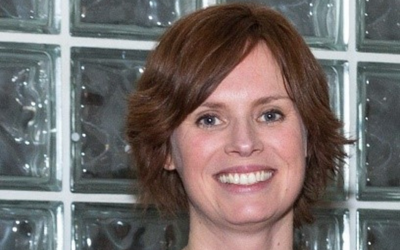You are here
- Home
- External Events and Publications
- Biennial APS Conference
- APS Conference 2023
- Conference programme
- Sharing insights from reverse mentoring in HE: the power of listening and learning for developing authentic staff/student relationships
Sharing insights from reverse mentoring in HE: the power of listening and learning for developing authentic staff/student relationships
Associate Prof Rachael O’Connor, University of Leeds, and Prof John E. Goldring, Liz Cain, Adam Westall and Dr Helen Smith, Manchester Metropolitan University
Email: R.E.OConnor@leeds.ac.uk
Session recording
Presentation
Abstract
This workshop brings together Reverse Mentoring (“RM”) practices from two different institutions in the UK (Rachael O’Connor - University of Leeds and Helen Smith, Liz Cain, John Goldring and Adam Westall - Manchester Metropolitan University). By establishing a community of practice, colleagues from these universities have developed a framework that other institutions can use to develop their own RM projects. Key to the approach is to develop a deeper understanding of the staff/student relationship. RM has been shown capable of this in our previous research (O’Connor, 2022; Cain, et al, 2022. See also Morris 2017; Zauchner-Studnicka 2017: Raymond et al, 2021).
By using a RM approach, we have developed innovative pedagogies to listen, learn and improve our practice as educators and those of our colleagues. Consequently, this workshop will engage delegates to explore RM pedagogies. Specifically, RM promotes inclusive practice in building authentic relationships between staff and students from different backgrounds. RM has the ability to empower and amplify voices of students from historically underrepresented backgrounds. While students are not taking part in the workshop, it is their voices and interactions with academics that form the backbone of this workshop making it useful for academics, practitioners, professional services colleagues and anyone working in HE. As this is about gaining a better understanding of students’ lived experiences, anyone working within the sector could benefit from developing this approach within their practice.
This interactive workshop will provide delegates with the opportunity to develop their own approach to RM within their institution. By developing their own action plan supported by the workshop facilitators, delegates will be able to build on their initial institutional planning after the workshop. We will also invite delegates to join our existing network of practitioners who are actively engaged in RM in order to further develop RM across the sector as a tool to enhance student experience. Following an introduction to the principles of RM and sharing examples of our best practice, delegates will be put into breakout groups within which they will begin to develop their own RM project outlines. Key activities will include small and larger group discussions on the following issues: (i) what they want the outcomes of their RM project to be; (ii) who they want it to target; and (iii) institutional barriers and challenges to implementing RM in their contexts.
Throughout the workshop, there will be small breakout group discussions leading to larger group debate with opportunities for constructive feedback from facilitators who have expertise in delivering RM initiatives in HEIs. The workshop will provide thinking space for those working in HE to develop this innovative approach to student engagement which purposefully disrupts traditional power structures in HEIs. Rather than discussing student experiences in an abstract way, the workshop will give delegates critical time for planning a practical intervention tailored to their own institutional needs.
We suggest an upper limit of 50 attendees for the workshop (e.g. 10 break out groups of 5 delegates per group) to allow for meaningful discussion.
References
R O’Connor ‘‘It makes me feel empowered and that we can make a difference’: Reverse mentoring between international students and staff in legal education’ (2022) European Journal of Legal Education 3(1), 95-126
Liz Cain, John Goldring & Adam Westall (2022) Seeing behind the curtain: Reverse Mentoring within the Higher Education landscape, Teaching in Higher Education, DOI: 10.1080/13562517.2022.2129963
Morris, L. (2017). “Reverse Mentoring: Untapped Resource in the Academy?”, Innovative Higher Education, 42(4), pp: 285-287.
Zauchner-Studnicka SA (2017) A model for reverse-mentoring in education. Int Scholarly Sci Res Innovation;11(3):551–558
Raymond, M., Siemens, J. and Thyroff, A. (2021). “Students, please teach us! Implementing student-employee reverse mentoring to increase career readiness”. Marketing Education Review, pp.1-6.
Associate Prof Rachael O’Connor
Associate Professor and Director of Student Support, University of Leeds
Rachael O’Connor (she/her) is an Associate Professor, Director of Student Support and APT Lead in the School of Law at the University of Leeds. She comes from a working class background and was one of the first in her family to go to University. This contributes towards Rachael’s passion for improving University experiences for students who self-identify as under-represented. The focus of Rachael’s scholarship is developing authentic staff/student relationships through reverse mentoring. She has won several prizes internally and externally for this scholarship. Rachael is currently undertaking a three-year fellowship exploring the intersections between co-designed staff/student reverse mentoring and academic personal tutoring. Rachael is also a trustee of legal mental health charity LawCare and is currently undertaking a research project in partnership with LawCare to pilot a reverse mentoring scheme between aspiring and junior lawyers and those working in EDI, wellbeing and trainee support in the legal profession.
As well as this session Rachael will also be presenting Value, visibility and belonging: exploring the impact of staff/student reverse mentoring within higher education on the first day of the conference.
Prof John E Goldring
Professor of Quantitative Pedagogies, Manchester Metropolitan University
John E. Goldring is a professor of Quantitative Pedagogies and has been working at the Manchester Metropolitan University since 2004. Leading the Q-Step Centre since 2018, he was part of the original team who successfully won the funding as the only Post 92 University in the initiative. Under his leadership, the Q-Step Centre developed an inclusive approach to teaching and learning statistics ‘where everyone counts’. Developing pedagogies that can improve the student experience has been his passion throughout his career. His most recent research focuses on reverse mentoring and how it can be used to gain a better understanding of the student journey. Combining these pedagogical interests, he is deeply committed to finding solutions to end the award gap that some groups face while attending university.
Liz Cain
Head of the Sociology Department, Manchester Metropolitan University
Liz Cain is a Reader in Applied Social Research, and the Head of the Sociology Department at Manchester Met where she has worked since 2005. Her work focuses on supporting student experiences and graduate futures, and she has developed work-based learning programmes for Criminology and Sociology students. More recently, she has focused on reverse mentoring as means of gaining a better understanding of student experiences of higher education.
Adam Westall
Senior Lecturer, Manchester Metropolitan University
Adam is a senior lecturer at Manchester Metropolitan University, researching and teaching criminology and policing since 2013. As a previous practitioner within the criminal justice system, he is now the departmental lead for the student belonging project and has a keen interest in working with external organisations to develop placement opportunities for students. Adam is passionate about the student experience and is keen on exploring innovative approaches to teaching and learning including playful pedagogies and reverse mentoring.
Dr Helen Smith
HR and Leadership Coach, Manchester Metropolitan University
Dr Helen Smith has been working with Manchester Met since 2013, primarily delivering HR and Leadership and Coaching courses. Helen leads units on the Masters HR course. Helen designed, led and delivered a coaching and mentoring pilot over two years to support 1,400 final year business studies students prepare for work. Something Helen loves is being a personal tutor to many students, applying and practicing coaching principles to assist students in their development journey. Having has held a variety of Senior Management positions in the healthcare and education sectors and worked as coach in organisations. Helen is passionate about motivating others since taking a sales team of 23 individuals, ranked 49th from 50, to the UKs number one sales team within twelve months. It wasn’t until later that Helen realised this was facilitated through a coaching approach. This coaching experience has been a constant thread in Helen’s research since.




